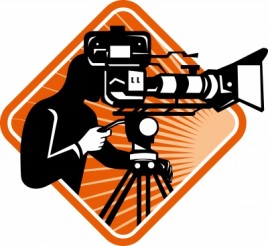10 tips for media interviews – don’t forget the microphone is on Prime Minister…
14 September 2015 By Northern Lights
Granted, Yorkshire can be a bit tribal but (as a Yorkshireman) I can say we pride ourselves on being the friendliest people in the world. So, when Prime Minister David Cameron was caught on microphone joking that Yorkshire people “hated each other”, it’s no surprise that he was instantly lambasted by an irate horde of flat-cap wearing, whippet-holding, pudding-munchers from the Ridings.
He’s done his best to laugh it off in the following days, but it serves as a timely reminder for the key skills you need when handling media interviews. The first of which is that you must always treat a microphone as if it’s live. The BBC has now caught out two sitting Prime Ministers by recording their comments when they thought they were off air – think back to poor old Gordon Brown and the “bigoted woman” in the run up to the election.
With another gaffe fresh in our minds, I thought it would be worth listing some top tips for handling media interview and offer some thoughts on the media skills you may need.
- Make sure you fully understand the topic before the interview
It is critical that you clarify exactly what an interviewer wants to discuss before you pick up the phone or step in front of a camera. Only by understanding the topic can you make sure you are the right spokesperson for the job – is there someone else in the business who is better placed to handle it? – and be sure that you can answer everything with authority and expert insight.
- Prepare yourself and research the interview topic
Before the interview look at the key trends around the topic, get up to date on your own business and your competitors and prepare for any tough questions. Also develop simple answers about you, your business and the topic. Make sure responses are easy to understand – imagine you are discussing it with friends in a social situation.
- Develop and understand a few key messages
Make sure you fully understand what you hope to communicate in the interview and develop three key messages. By having three solid messages to refer to, you can get across what you need to and have a bank of ‘go-to’ phrases for the session. It’s also worthwhile having a bank of statistics that support what you are saying.
- Preparation, preparation, preparation…
Rehearse your responses, prepare how to handle difficult questions, consider all the angles. Practice makes perfect – keep going over it.
- For example…
The key part of making an interview interesting is bringing what you are saying to life. That is done by using analogies. Rather than just saying something as fact, bring it to life by saying “for example” and describing a real world application. Use phrases like “it’s the next…”, “it’s like when…”, “it’s like a…”
- Speaking during the interview
The biggest problem anyone faces with me is getting me to stop talking and that’s a bad trait to have in interviews. Make sure answers are short and to the point, don’t talk for more than a minute at the most without taking a break. Also try and keep your speech slow, clear and relaxed. Make eye contact, smile and eliminate any distractions – make sure your pockets are empty.
- It’s a trap!
I spent many years working as a journalist and perhaps the best trick in my arsenal was silence. Time and time again, as I sat in silence smiling and nodding, interviewees would desperately babble to fill the void of a silent moment and they would always reveal more than they wanted to. Embrace the silence. When you’ve said what you need to say, stop and let the interviewer take over again – even if they sit quietly, smiling and nodding.
- What do I do if I can’t answer the question?
Never reply with “no comment” – it looks evasive at best and guilty at worst. If you genuinely are unable to speculate or provide an answer just provide a simple response and follow it with a statement that gets the interview back on track. For example, say “I can’t really speculate on that, but what’s important to consider is…”.
- Things to avoid in an interview
Every industry is filled with jargon and its own terminology. Remember you are speaking to a wide audience and you have to keep it simple and use plain English. Never lie – you will be instantly exposed by the interviewer or by social media. Don’t be negative about competitors and never, never forget that the microphone could be on.
- After the interview
Interviews are a great way to position you and your brand and should be embraced as a great opportunity. After the interview say thank you and help the news team by asking if there’s anything else they need. Provide more detail on your answers if needed and ask when it will be broadcast and if you can get a copy. Don’t ask to review the copy or for approval as you’ll be told ‘no’ anyway. However, do go back and ask for mistakes to be clarified after it is broadcast or published if necessary.
Finally, shout about it. It’s great for you and the media company so share it through social media and through your network.
As I’ve said, interviews should be embraced as they are fantastic for showcasing your expertise and insights and for promoting your business to a wider business. The good news is that, if you follow the tips above, you’ll be seen as a great source for interviews and will be invited back.
It would be great to hear your own interview experiences and tips. If you have anything to share, please write them in the comments below.



